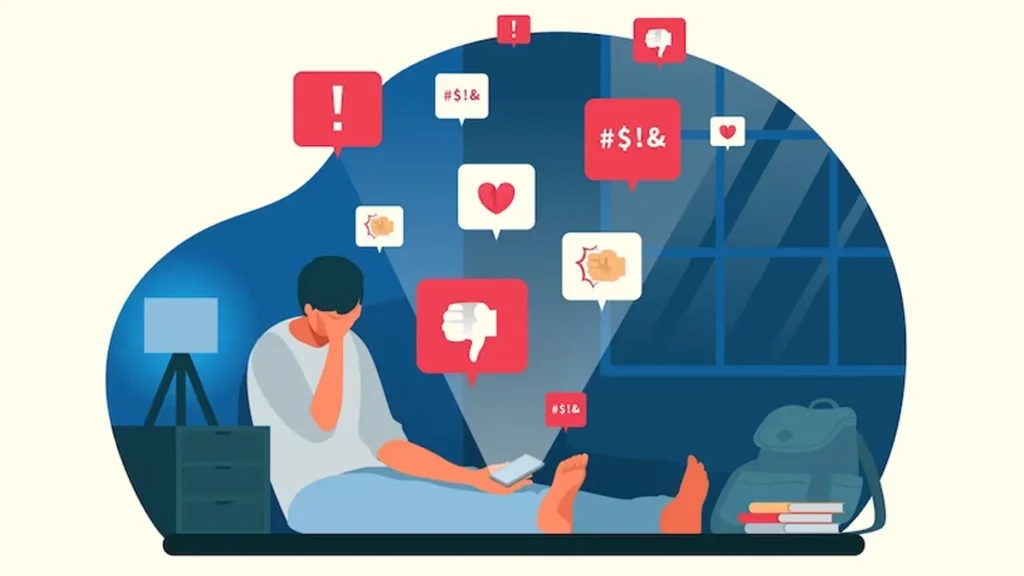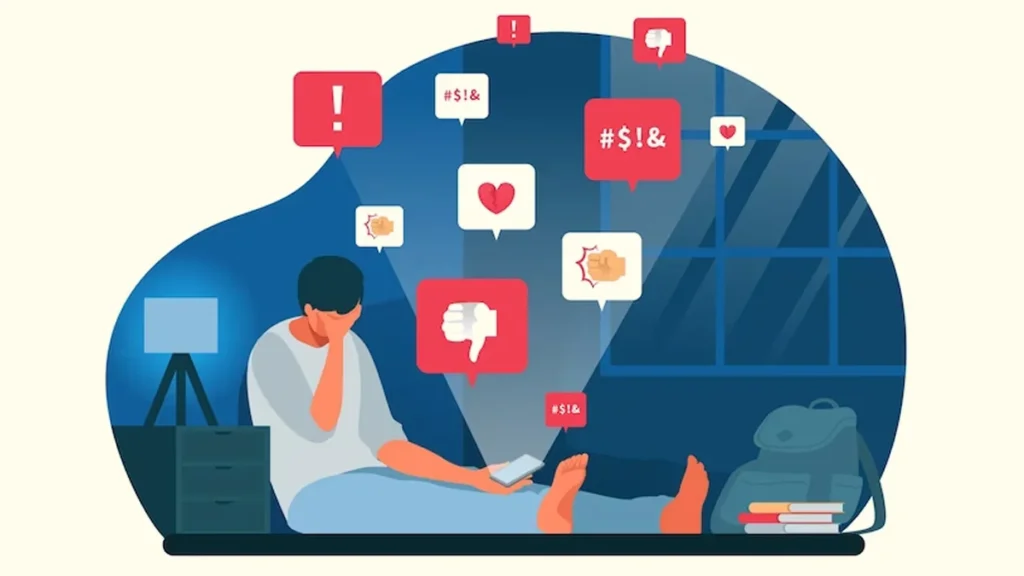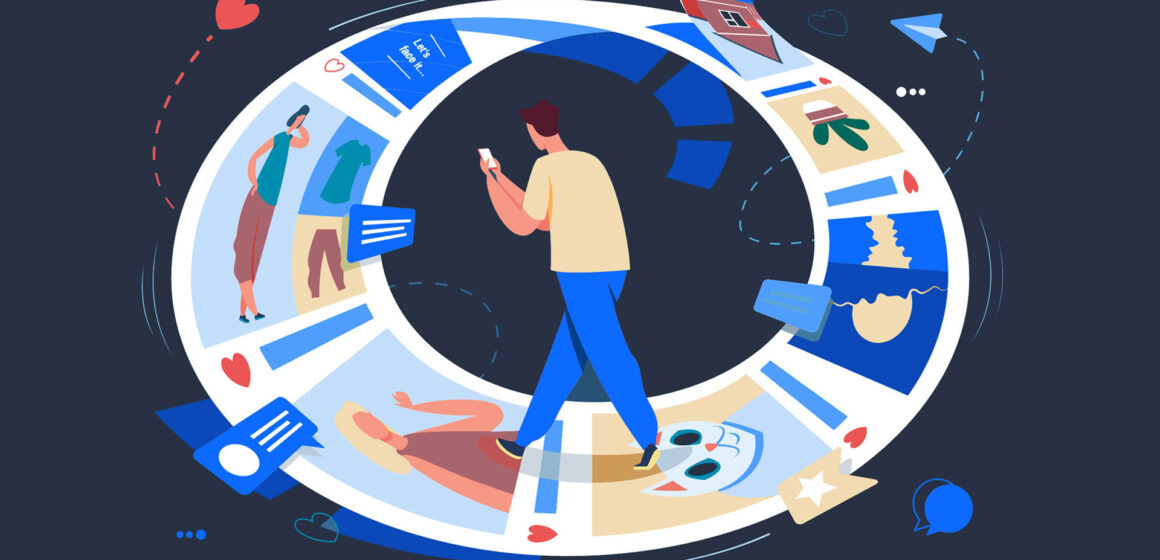Social media has become an integral part of daily life, particularly for younger generations. Platforms like Instagram, TikTok, and Snapchat offer easy access to entertainment, connection, and self-expression. However, while social media has undeniable advantages, it also raises concerns about its impact on mental health. Thus some argue that it fosters community, creativity, and support, while others point to the rising rates of anxiety, depression, and self-esteem issues linked to excessive use.
Positive Effects of Social Media on Mental Health
Undoubtedly, social media makes it easy to stay in touch. You can talk to friends and family anytime, anywhere. Even if you’re far apart, you can still share moments with them. A simple video call or group chat can make you feel connected and less lonely.
Additionally, social media is also a place where important issues can be talked about. Many people use social media to raise awareness about mental health. Influencers and organizations often share helpful information about anxiety, depression, and how to get help. This can encourage people to seek help and learn more about mental health.
Furthermore, social media can be a good source of useful information. There are pages and accounts that share mental health tips, coping strategies, and educational content.
Negative Effects of Social Media on Mental Health
While social media has some good points, it can also have negative effects on mental health. Let’s look at the bad side.
- One of the biggest problems with social media is that it makes us compare ourselves to others. People often share only the best parts of their lives—like vacations, parties, or new clothes. When we see these posts, it’s easy to feel like we’re not good enough. This therefore can lead to lower self-esteem and feelings of inadequacy.
- Have you ever seen a post about your friends hanging out without you? Or about a party you weren’t invited to? This can make you feel anxious or upset. Thus social media can make us feel like we’re missing out on something important. This feeling, called FOMO, can lead to loneliness and stress.
- Sadly, social media can be a place for cyberbullying. People sometimes post hurtful comments or send nasty messages online. If you’ve ever been bullied on social media, you know how bad it feels. Cyberbullying can therefore seriously affect your mental health, causing sadness, anger, or anxiety.

- Additionally, social media is designed to keep you hooked. The more you scroll, the more you want to keep scrolling. This can lead to social media addiction. Spending too much time online can interfere with real-life activities, like school, hobbies, or sleep. It can also make you feel stressed or anxious if you’re constantly checking for updates or likes.
- Using social media late at night can also hurt your sleep. The blue light from your phone or computer can mess with your sleep schedule. It’s harder to fall asleep if you’ve been staring at a screen. Lack of sleep can make you feel tired, irritable, and anxious the next day.
How to Protect Your Mental Health on Social Media
It’s clear that social media has both good and bad effects. But how can we make sure it doesn’t hurt our mental health? Here are some tips to help you use social media in a healthy way.
1. Limit Your Screen Time
One of the best ways to protect your mental health is to limit how much time you spend on social media. You don’t need to scroll for hours every day. Set a timer or use apps that can help you track your screen time. This will thus stop you from getting sucked into endless scrolling.
2. Curate Your Feed
Not all content on social media is good for you. So follow accounts that make you feel happy, inspired, and motivated. If someone’s posts make you feel bad about yourself, it’s okay to unfollow them. Your feed should above all be a place that lifts you up, not brings you down.
3. Engage in Positive Interactions
When you interact with others on social media, try to keep it positive. Be kind and supportive in the comments. If you see something negative or hurtful, don’t join in. Positive interactions can make you feel good about yourself and therefore help you build a strong community online.

4. Take Regular Breaks
Taking breaks from social media is important for your mental health. Step away from your phone or computer for a few hours each day. Spend time doing other things, like reading, playing outside, or hanging out with friends. These breaks will additionally help you feel refreshed and reduce stress.
5. Prioritise Real-Life Connections
Don’t let social media replace face-to-face interactions. Spend time with family and friends in real life. Go to a coffee shop, hang out at the park, or play a game together. Real-life connections are important for your mental health, and they can undoubtedly help you feel more connected and supported.
Thank you for reading, click the link to read more of our Opinion Articles
Inside Success presents to you our digital platform, created to inform, inspire and empower 16-35s. Through our articles, we aim to bring bold ideas, fresh voices and real conservations to life. From mental health advice, to career information, and fashion tips to social issue debates, Inside Success is proud to have created a platform that has something to cater to everyone.




Leave a Reply
You must be logged in to post a comment.